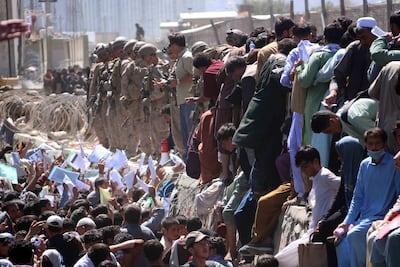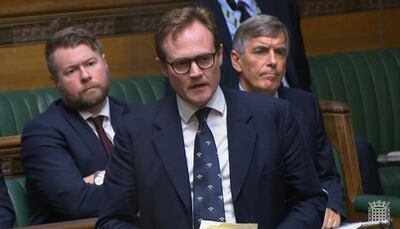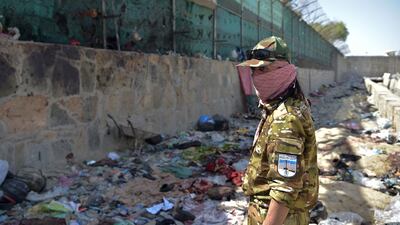The West has no say over the future of Afghanistan after losing control of the situation, according to a prominent British MP.
“This is what defeat looks like,” Tom Tugendhat said of the explosions that killed scores of people in Kabul, including 13 US marines.
Mr Tugendhat, who chairs the Foreign Affairs Select Committee, said the West now has no say over the future of Afghanistan.
Speaking to BBC Radio 4, he said: “Defeat is when you don’t control any of the process any more and if you are lucky you just about get out with your lives and a bit of your equipment, and that’s what we are doing at the moment.
“We don’t have any control, we don’t have any say. It’s a defeat.”
Mr Tugendhat – himself a former Territorial Army soldier who served in Afghanistan – described the situation as “the sun setting over some really pretty terrible decisions by the West over a number of years”.
He saidthere had been “a complete failure to believe in the principles we claim to advocate”.
“We haven’t invested significantly in our defence for many years, we haven’t invested significantly in our foreign policy for many years and we are surprised when organisations like the Taliban defeat us in Afghanistan or countries like China outwit us in diplomacy in Africa,” he said.
“But I am afraid that is the result of decisions we have taken and are taking even today."
Mr Tugendhat has been highly critical of the UK and US’s abandonment of Afghanistan and was applauded in parliament when he gave a powerful and emotional speech last week in which he said he was struggling through “anger, grief and rage".
He told MPs: “I've watched good men go into the earth, taking with them a part of me, a part of all of us. This week has torn open some of those wounds, left them raw.”
A former British Army major-general criticised the British government for the way it handled the evacuation of Kabul
Charlie Herbert, a former Nato adviser, said he was ashamed of the pull-out from Afghanistan.

Speaking to British broadcaster Sky News, he said he believes the US-led decision to pull out of Afghanistan “without an inclusive political settlement was just madness” and that the chaotic evacuation is a direct consequence.
“I’m ashamed, I’m genuinely ashamed as I think of what we’ve done here,” he said, about the “betrayal” of former Nato interpreters who may not make it out of the country before the August 31 deadline.
He said: “There are three categories of people who have been betrayed. Number one, I think this decision has betrayed all the servicemen and women who served in Afghanistan, 150,000 in the United Kingdom, over 450 who sacrificed their lives, betrayed by this decision. We’ve betrayed an entire nation, by pulling the rug from under their feet, you know once we’d pledged to stay with them. And now, right now, as we abandon these interpreters, these local staff in many of these NGOs, all of these other people, we’ve betrayed them as well, completely betrayed. I mean, I’m ashamed, I’m genuinely ashamed as I think of what we’ve done here.
“My worry is the lack of prioritisation that’s gone into this evacuation. It’s all very well for the prime minister [Boris Johnson] to say, you know, we’ve got huge amounts of people out, the equivalent of a small town. Have we got the right people out? I’m worried that we haven’t. I’m worried that those who are most at risk, many of them are still in Kabul. Many of them are still hiding in cities around Afghanistan.”
Reacting to Thursday’s explosions, Mr Tugendhat dismissed suggestions that the Taliban were now on the same side as coalition troops, saying: “This is an organisation that has been hosted by the Taliban in various different ways, they are now complaining that the dog they taught to bite is biting.”

He said ISIS and the Taliban had “housed and husbanded each other” in various ways for many years.
Speaking to BBC News, he said western powers had to ensure they had not thrown “a tonne of fuel” over the ambitions of other terrorist groups by withdrawing from Afghanistan.
“The reality is there are many other groups that have drawn inspiration from this – Al-Shabaab in the Horn of Africa, Boko Haram in Nigeria, Al Qaeda in the Islamic Maghreb in Mali,” he said.
“We need to be making absolutely certain that what we haven’t just done is thrown a tonne of fuel on to the smouldering embers of a very vicious fire.”


